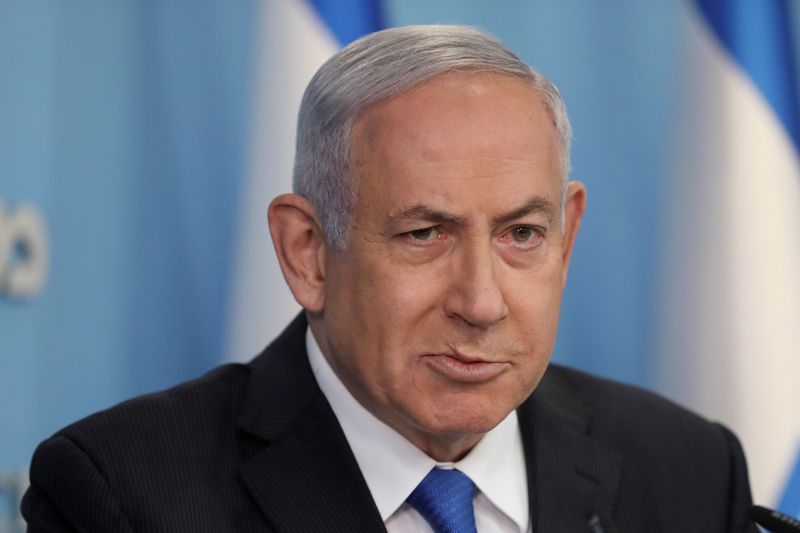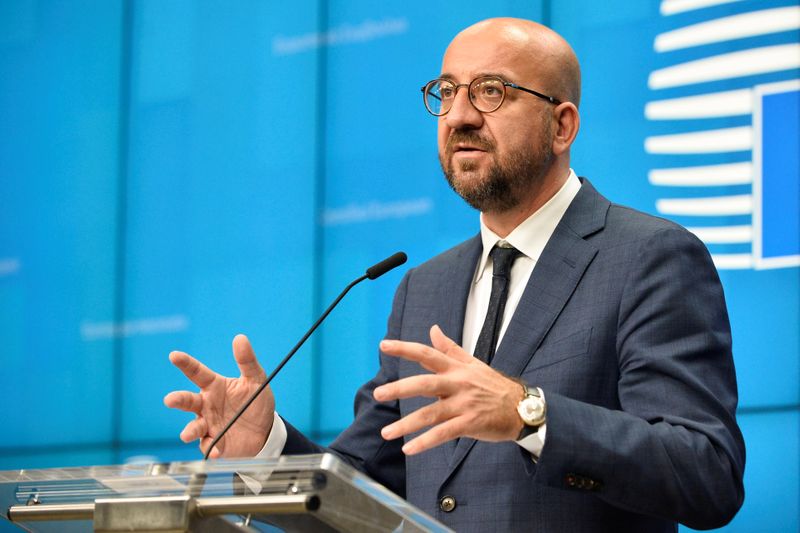(Reuters) - Get well messages for U.S. President Donald Trump poured in from foreign capitals on Friday after he and his wife tested positive for the coronavirus, but some had little sympathy for a leader whose response to the pandemic has been widely criticised.
Trump, who might be voted out of office on Nov. 3, denies accusations that he downplayed the severity of the outbreak as the world's most powerful nation also became the worst hit, accounting for around 20% of a global death toll that crossed a million this week.
Most diplomatic responses to news that Trump, 74, and his wife Melania had tested positive for COVID-19 observed the niceties, while governments everywhere assessed how it might impact the outcome of next month's U.S. election.
"COVID-19 is a battle we all continue to fight. Everyday. No matter where we live," European Council President Charles Michel said in a tweet, wishing America's First Couple a speedy recovery.
But disappointed by Washington's leadership during the global health crisis, some messages were laced with stinging barbs.
"This demonstrates that the virus spares no one, including those who have shown scepticism. I wish him a swift recovery,” said Gabriel Attal, spokesman for the French government.
If one of the United States most important NATO allies sounded somewhat terse, there was no hiding the bitter satisfaction evident in China's state-controlled media following news that their country's chief antagonist had joined the COVID sick list.
"President Trump and the first lady have paid the price for his gamble to play down the COVID-19," tweeted Hu Xijin, editor in chief of China's Global Times newspaper.
"The news shows the severity of the US’s pandemic situation. It will impose a negative impact on the image of Trump and the US, and may also negatively affect his reelection."
Barely two weeks ago, Trump had told the U.N. General Assembly that China, where the virus first emerged late last year, should be held accountable for unleashing "this plague on the world".
But it was just two days ago, during the acrimonious presidential debate that Democratic rival Joe Biden excoriated Trump for his handling of the crisis at home.
Having assured Americans in January that the looming threat of the disease spreading out of China was "totally under control, and told them in February, that the virus would disappear one day "like a miracle", Trump tested their credulity in April by suggesting the possibility that disinfectant could be injected to clean out the virus.
The China Daily, the country's official English language newspaper, piled on:
"Since it emerged earlier this year, Trump, the White House and his campaign have played down the threat and refused to abide by basic public health guidelines — including those issued by his own administration — such as wearing masks in public and practicing social distancing. Instead, Trump has continued to hold campaign rallies that draw thousands of supporters. The virus has killed more than 200,000 Americans and infected more than 7 million nationwide."
Warmth and concern for Trump was more plentiful in Israel and Taiwan, two governments that treasure their friendship with the United States.
"Like millions of Israelis, Sara and I are thinking of President Donald Trump and First Lady Melania Trump and wish our friends a full and speedy recovery," Israeli Prime Minister Benjamin Netanyahu tweeted, referring to his wife.
"The government & people of Taiwan stand with the U.S. at this testing time," Taiwan's foreign ministry said in a statement.

(This story fixes typo in paragraph 12)
